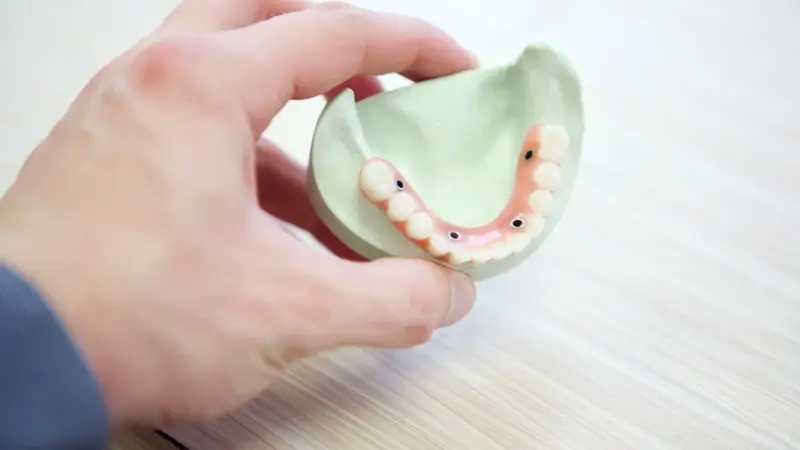The really short answer is that you could have as many dental implants as you have teeth that need replacing. However, each patient has individual needs and circumstances that their dentist takes into account when making decisions about the most appropriate dental care.
The role of dental implants
The purpose of a dental implant is to replace missing teeth, in order to help the patient maintain their oral health and continue to eat, speak and chew properly. They're also a great option for cosmetic improvements, such as enhancing an otherwise unattractive smile. Implants are recognised as one of the most stable options because they contain a metal rod that functions as the root of the tooth. The rod is drilled into the jaw, and eventually fuses with the bone, which ensures a sturdy base for the dental crown. With such a secure foundation, dental implants also tend to be very long-lasting.
A dental implant can be used to replace one individual tooth, or can be used in conjunction with a dental bridge to replace a row of teeth.

How many dental implants can you get at one time?
How many implants should be installed in one appointment is largely down to the needs of the patient, and their expected recovery. In modern dentistry, it's usual to replace individual teeth as they fall out or require extraction, rather than wait until the situation is severe.
However, there are times where a patient needs more than one tooth replaced, and in these circumstances it may be preferable to deal with them all at once. Spreading the work across multiple different appointments could lead to more stress for the patient, and string out the recovery period.
The process of receiving implants is actually relatively pain-free because the dentist will use local anaesthetic to numb the area. However, there may be soreness and discomfort following the procedure. While this tenderness could be more pronounced if multiple teeth have been replaced at once, it will also be over more quickly if only one surgery is required.

Using implants to support dental bridges and dentures
Where patients do need multiple teeth replaced, they may be able to have an implant-supported dental bridge installed instead. The procedure of fixing the replacement teeth into the jaw is much the same, however, replacing the root of the tooth with a metal rod is not necessary for each individual tooth.
A dental bridge is multiple false teeth attached to one another to span the gap. Often affixed by dental crowns that are cemented to neighbouring teeth, they can be installed using dental implants. Because the replacement teeth are attached to each other, only a small number of metal rods need to be drilled into the jaw to hold the structure in place.
Similarly, implant-support dentures can replace full sets of teeth with only a handful of crowns being supported by the metal rod. The implants will anchor crowns at key points, to ensure the dentures are as strong and stable as possible.
Whether or not you can have dental implants installed depends on the strength and structure of your jaw.
Knowing how to proceed with dental implants
While there are a number of solutions available for patients needing replacement teeth, not all treatment options are suitable for everyone. Whether or not you can have dental implants installed depends on the strength and structure of your jaw, and you may need to consider the cost implications of the various options available.
At City Dentists, we offer a variety of treatments and ensure we discuss each option thoroughly to arrive at the right result for each of our patients. To start the discussion, make an appointment online or call 04 978 4964.
